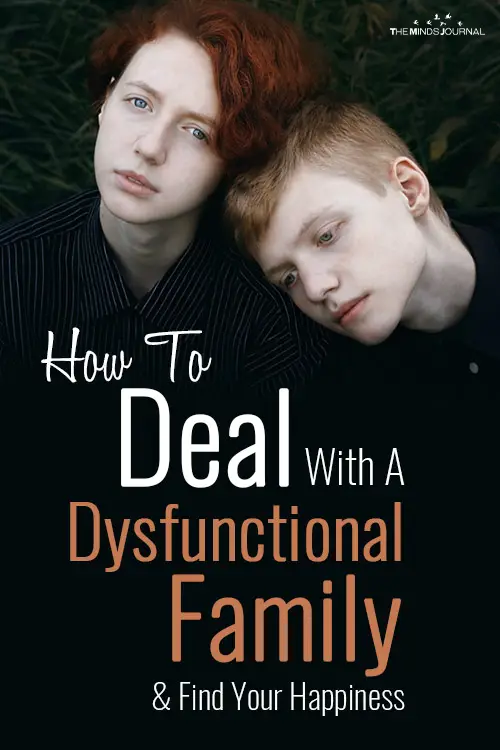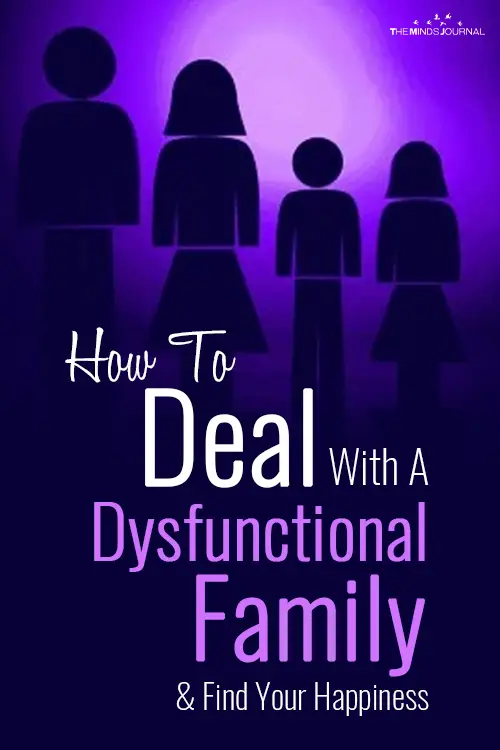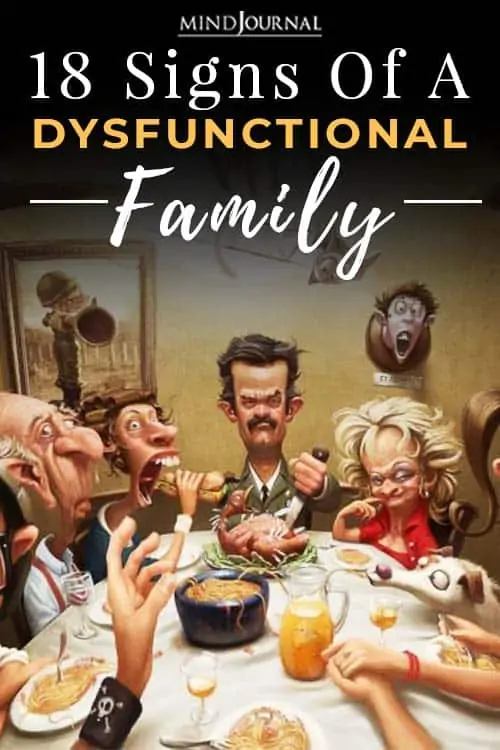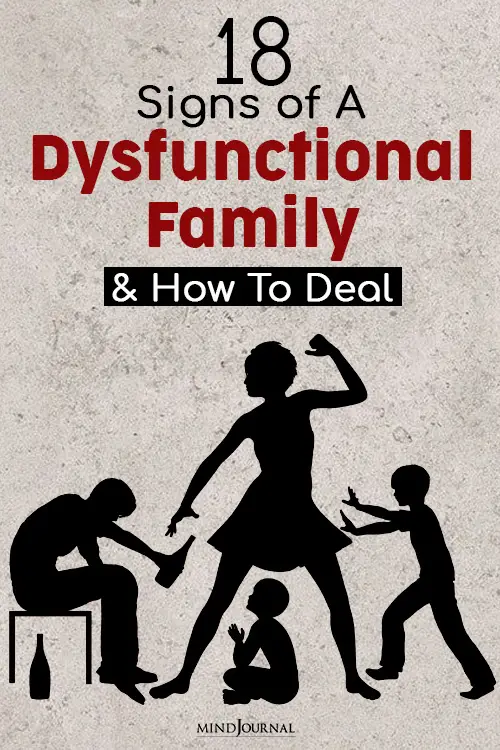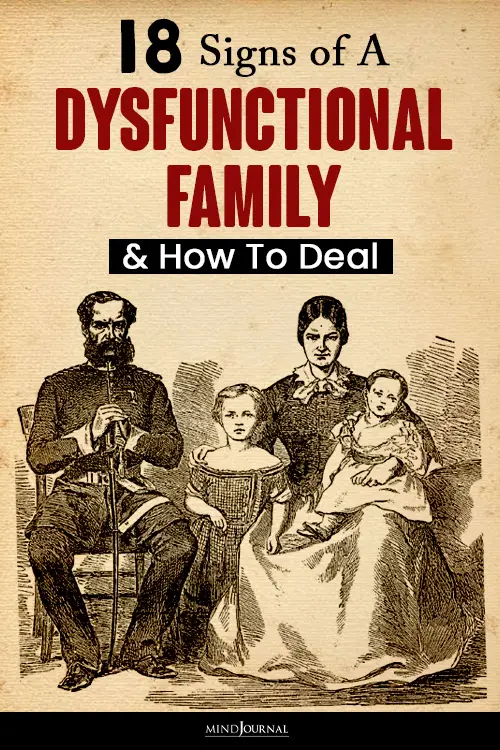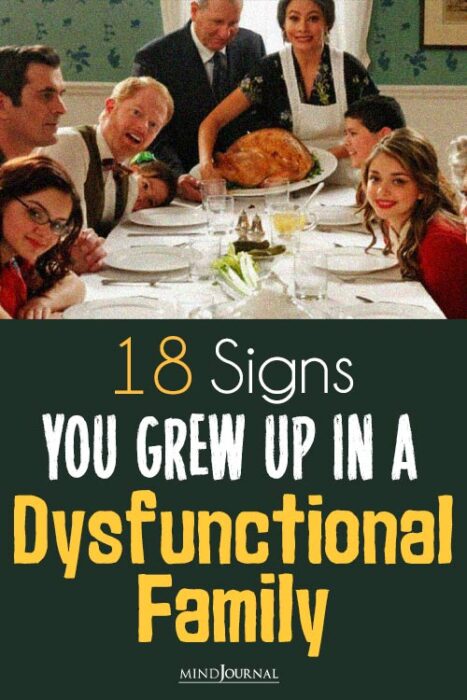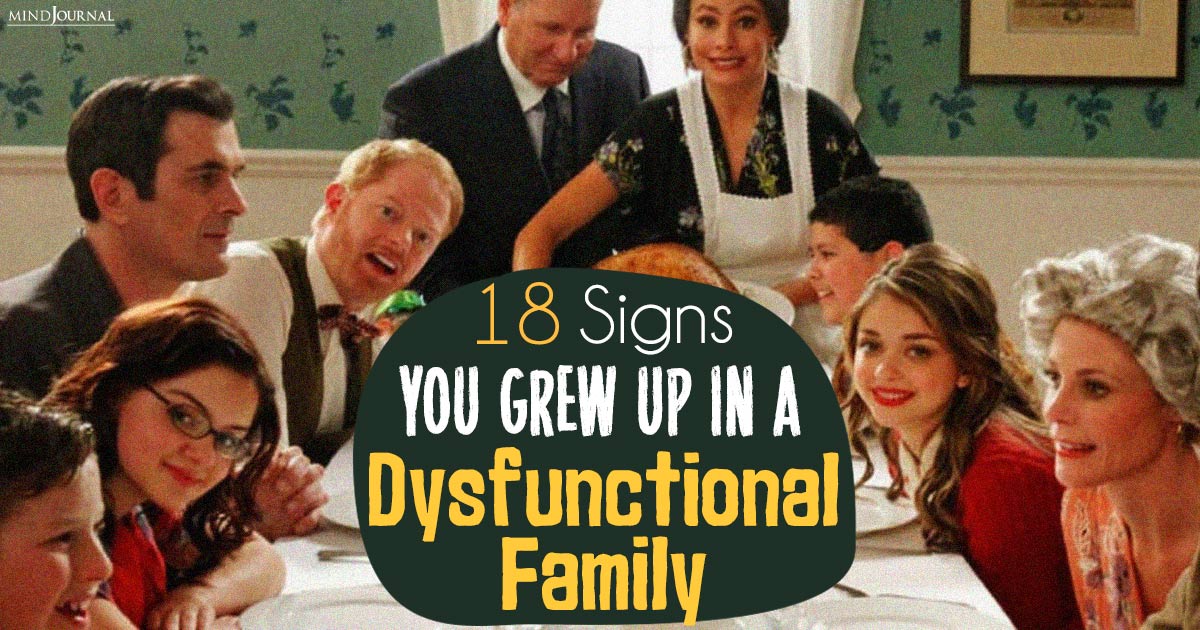Living with a toxic dysfunctional family can be very taxing and it can undoubtedly leave you feeling mentally, emotionally and physically drained. Read on to know the signs of growing up in one.
With the growing conflict in the household which may lead to abuse, it becomes imperative that you learn to avoid disagreements, set boundaries, and effectively cope with your family. A great place to start is focusing on the well being of your mental and emotional health and standing up for your rights.
“Toxic relationships not only make us unhappy; they corrupt our attitudes and dispositions in ways that undermine our healthier relationships and prevent us from realizing how much better things can be.” — Michael Josephson
———-
The ideal family consists of a group of people we can depend on, people who love us, nurture and care for us, people who offer their guidance and support as we go through life, people who we trust.
Family is the most important influence in the life of a young child. We usually think of family as blood relatives but sadly not all blood relatives have our best interests at heart. Some of the most toxic people we know may share the same DNA.
Read 7 Common Traits Shared By People Who Grew Up In Dysfunctional Families
A dysfunctional family background often leads to a child believing that their opinions, needs, and desires are unimportant and meaningless. As they mature they often lack confidence with low feelings of self-worth. Depression and anxiety are commonplace. Adult children from narcissistic families need support to make them understand that they are not inadequate and to help them develop healthy self-esteem and build strong and healthy relationships.
In a toxic family neglect and abuse are often a daily occurrence. This family may look good from the outside but it’s a different story for those who live within this dysfunctional family dynamic. Everything is about an image.
The narcissistic parent will likely put on a display in public and be seen as generous, personable and charming whereas behind closed doors they are abusive and controlling.
The house where abuse takes place, whether mental or physical, will never be a home. Talking about their issues is forbidden. (Let’s just pretend everything’s perfect.) Family members who thrive on drama, negativity, jealousy, criticism, and denigration will never make a child feel good about themselves.
Read 8 Characteristics Shared By Dysfunctional Families
Children from narcissistic families rarely grow up to be close to their brothers and sisters in later life. They have often been pitted against one another in their childhood. Unless the child holds the position of the ‘golden child’ within the family unit, they will be seen and not heard, blamed and shamed.
Nothing they ever do will be good enough and they’ll soon learn that their value depends on their achievements, how they can make the family look good and not for who they are.
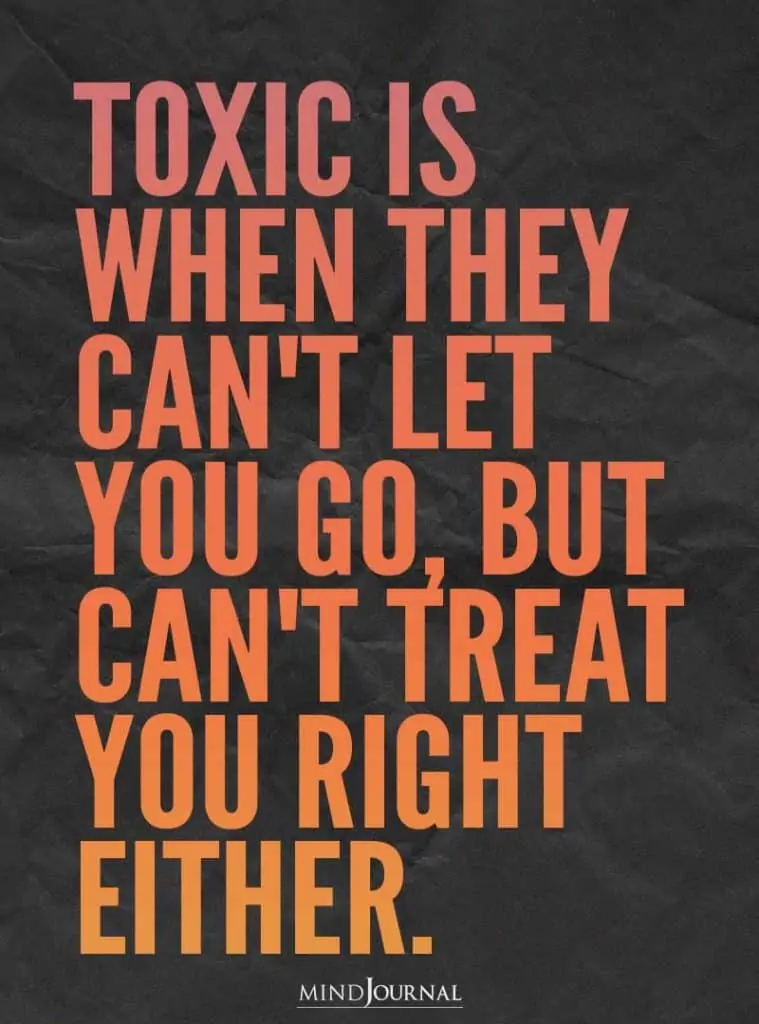
“Family is supposed to be our safe heaven. Very often, it’s the place where we find the deepest heartache.” – Iyanla Vanzant
Signs you grew up in a dysfunctional family
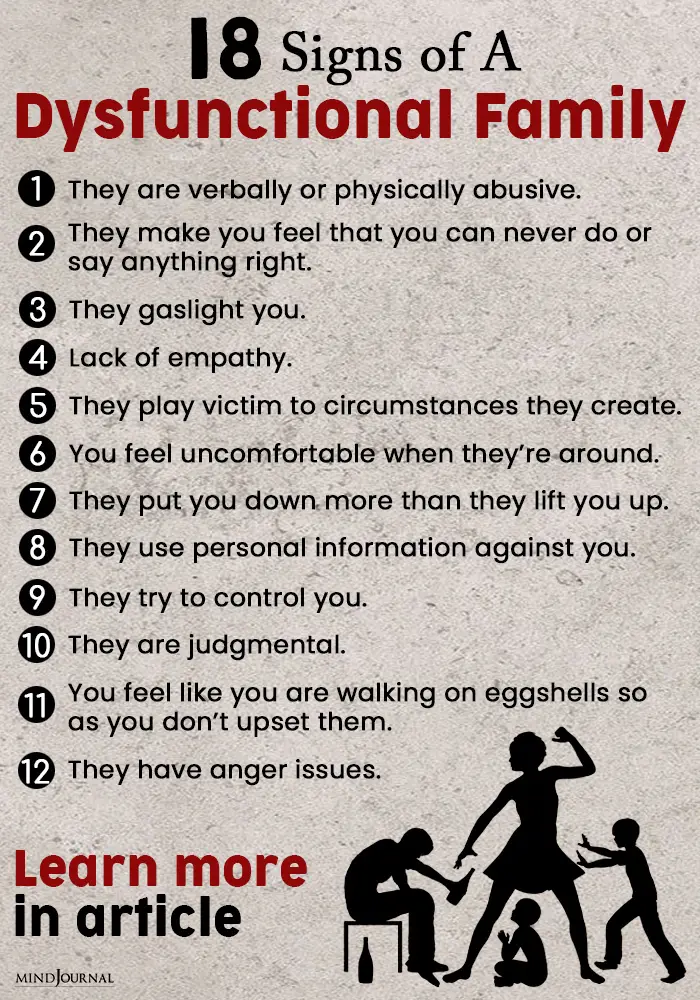
1. They are verbally or physically abusive.
2. They make you feel that you can never do or say anything right.
3. They gaslight you. (Sometimes described as ‘psychological warfare’ gaslighting is an insidious process of mind games that occur over a period of time resulting in the person being gaslighted questioning their own sanity and/or reality unable to trust their own judgments.)
4. Lack of empathy.
5. They play victim to circumstances they create.
6. You feel uncomfortable when they’re around.
7. They put you down more than they lift you up.
8. They use personal information against you. (Information you gave them in confidence.)
9. They try to control you.
10. They are judgmental. (Justified criticism is healthy but constant criticism will destroy anyone’s self-esteem.)
11. You feel like you are walking on eggshells so as you don’t upset them.
12. They have anger issues. (Explosive rages.)
13. They exhibit passive-aggressive behavior. (Invoking the silent treatment for some perceived slight will create tension and uncertainty.)
14. There are endless and unnecessary arguments. (Disagreements are normal. Frequently provoking and initiating arguments is not.)
15. They try to isolate you from your friends or other family members. (Once isolated, you become easier to control with no one to turn to but the abuser.)
16. This person uses manipulation tactics for personal gain. (Exercises unscrupulous control or influence and emotional exploitation over another person.)
17. They spread malicious gossip. (They turn people against each other creating jealousy and disharmony.)
18. They make you unhappy and feel bad about yourself. (You may be convinced that there is something wrong with you and that everything that goes wrong is your fault.)
Read How Toxic Family Dynamics Can Cause C-PTSD In Emotionally Intense Children
How do you deal with a toxic dysfunctional family?
“Some of the most poisonous people come disguised as friends and family.” – Unknown
The worst thing you can do is do nothing. By doing nothing you are giving them the impression that their behavior is ok. Your mental and physical well-being may suffer as a result. Stop giving up a part of yourself to keep the peace and please someone who is impossible to please.

Behavior such as the behavior mentioned above will drain you emotionally. Something that I hear so very often is, ‘I wish that I had done something sooner,’ and ‘If only I’d known that this wasn’t normal. I thought all families were like this and I blamed myself.’
For your own sake, establish boundaries sooner rather than later. You teach people how to treat you by setting healthy boundaries.
Read 11 Ways To Cope With A Toxic And Estranged Family Relationship
Your boundaries are a set of limits or rules where you decide what is acceptable and what is not. They’ll differ from person to person. Normal healthy people know not to cross the line and should have a reasonable idea when not to intrude. On the other hand, the narcissist personality will have absolutely no respect for the boundaries you set.
They have an extraordinary knack of pushing people to their limits for their own amusement, to create friction or drama or to test you. Setting boundaries with a narcissist will not be a one-off thing.
Expect it to be something that you will have to address time and time again. Communicate your wishes firmly and directly and don’t let them push your buttons.
Remain resolute and leave them in no doubt that you mean what you say or things will go back to the way they were before.
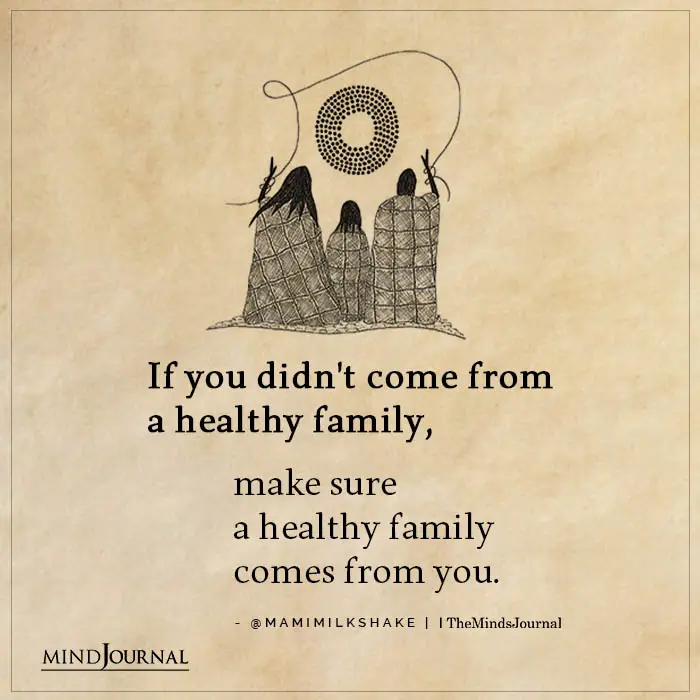
Healthy boundaries include ‘alone time’ and time to spend as you see fit. Never let anyone make you feel guilty for setting standards. If they get angry with you for setting standards, they’re not giving you the respect that you deserve. They are the ones with the problem, not you.
Some people will never respect the boundaries you set and will not change their behavior. If they don’t respect your boundaries you may need to examine what position this person will play in your life.
You may find that you need to create some distance between you and family members. You are not being selfish or demanding, you’re simply practicing healthy self-care. Not every toxic person needs to be cut out of your life but sadly sometimes, someone may be too toxic to you for you to justify keeping them around.
You can’t change the past but you can take control of your future. It’s not easy to distance yourself from family but sometimes this is the only answer and absolutely necessary.
The key is in the intent. You’re not doing this to intentionally hurt or punish someone but to protect yourself so let go of the guilt.
When you cut out toxic people from your life, they will often turn the story around and blame you for the conflict. Hard as it may be, ignore their behavior. Those people who believe their lies and pass judgment without proof may be best avoided too.
Never give up on your own emotional and physical health by tolerating disrespect and abuse by a dysfunctional family member. Sharing the same bloodline simply means you are related but it doesn’t make you family, love does.
Read The 5 Child Roles In Dysfunctional Families
“Until you let go of all the toxic people in your life, you will never be able to grow into your fullest potential. Let them go so you can grow.” – DLQ
Dealing with a dysfunctional family can be very hard at times, especially if you are an adult. After all, it is your family. Having a dysfunctional family can often cut you to your core as you feel hurt on a much deeper level. Hence, it is important that you focus on healing yourself and your overall well-being, first and foremost.
Family can hurt us. But there is no need for you to be a silent victim. You can stand up, take charge of your life and say no to all the negativity and toxicity. Start with setting boundaries and loving yourself with all your heart.
You are the boss of your own life. Give yourself permission to do what is best for you.
Written by Anne McCrea Originally appeared in Narcissistic and Emotional Abuse Narcissistic and Emotional Abuse, Shattering the Illusion, now available on Amazon Amazon UK Amazon US
